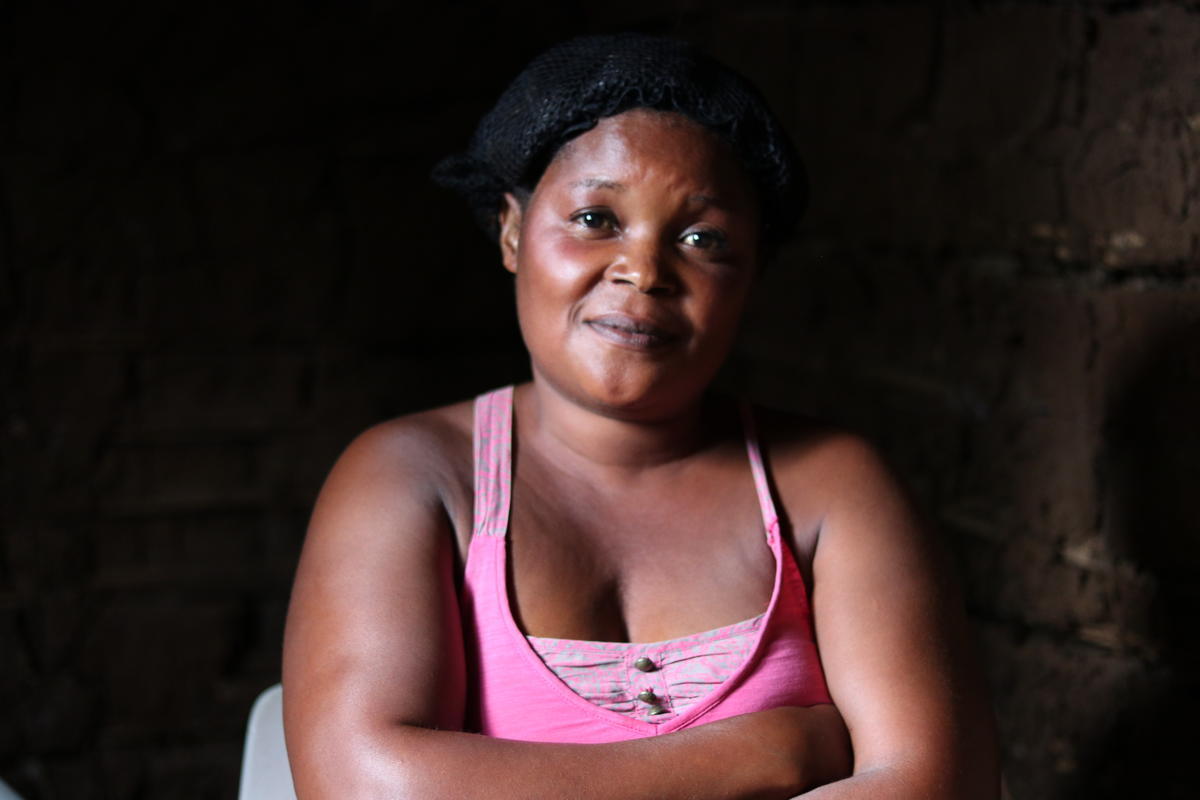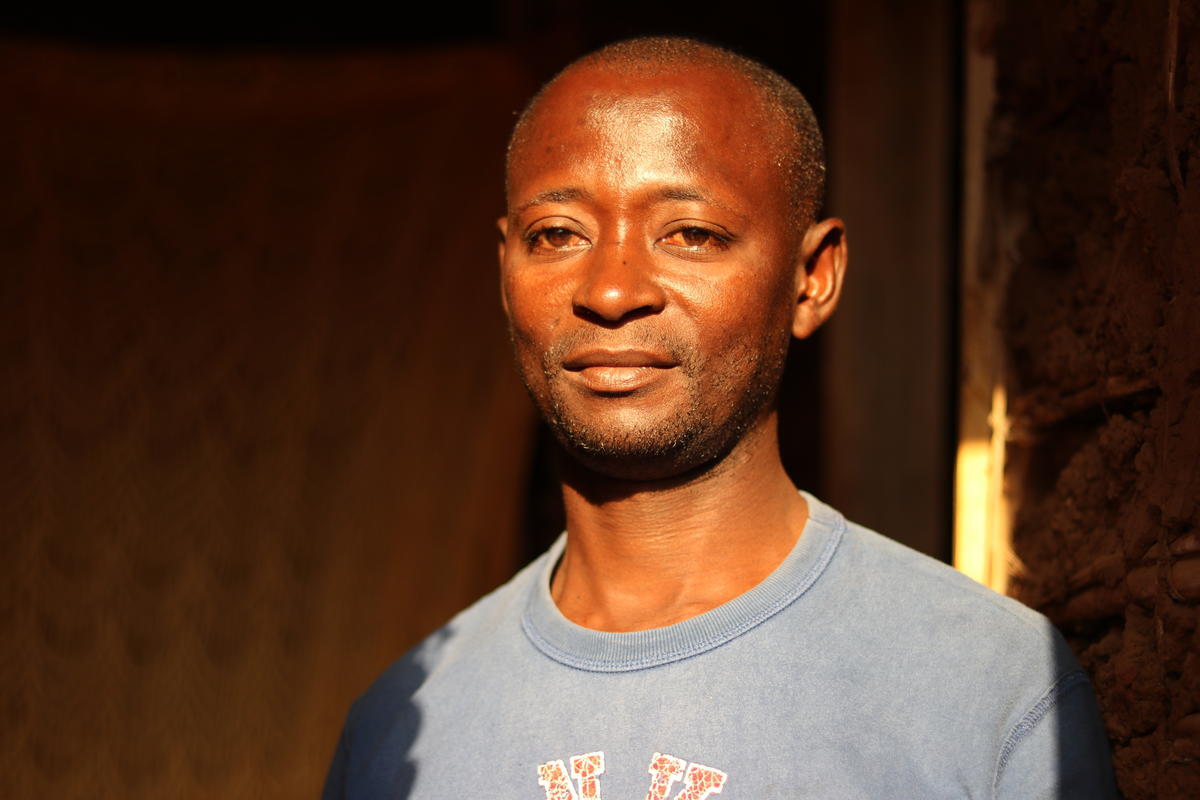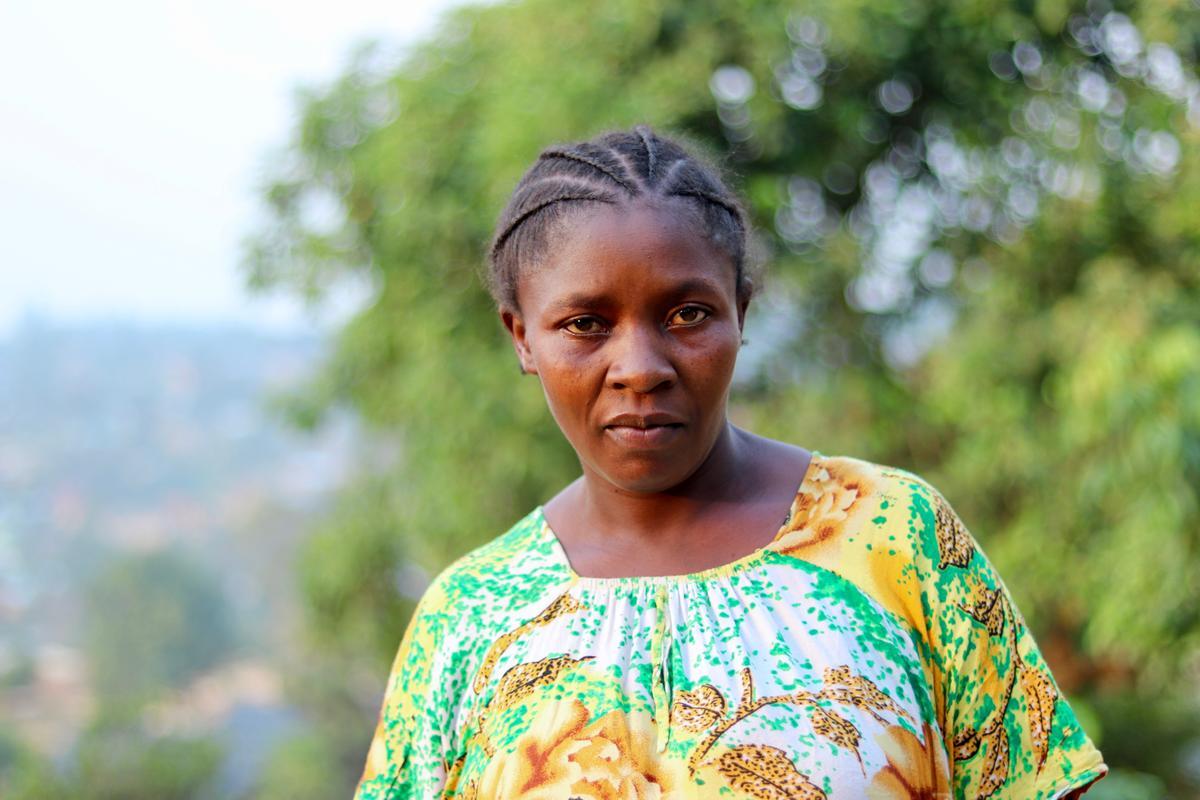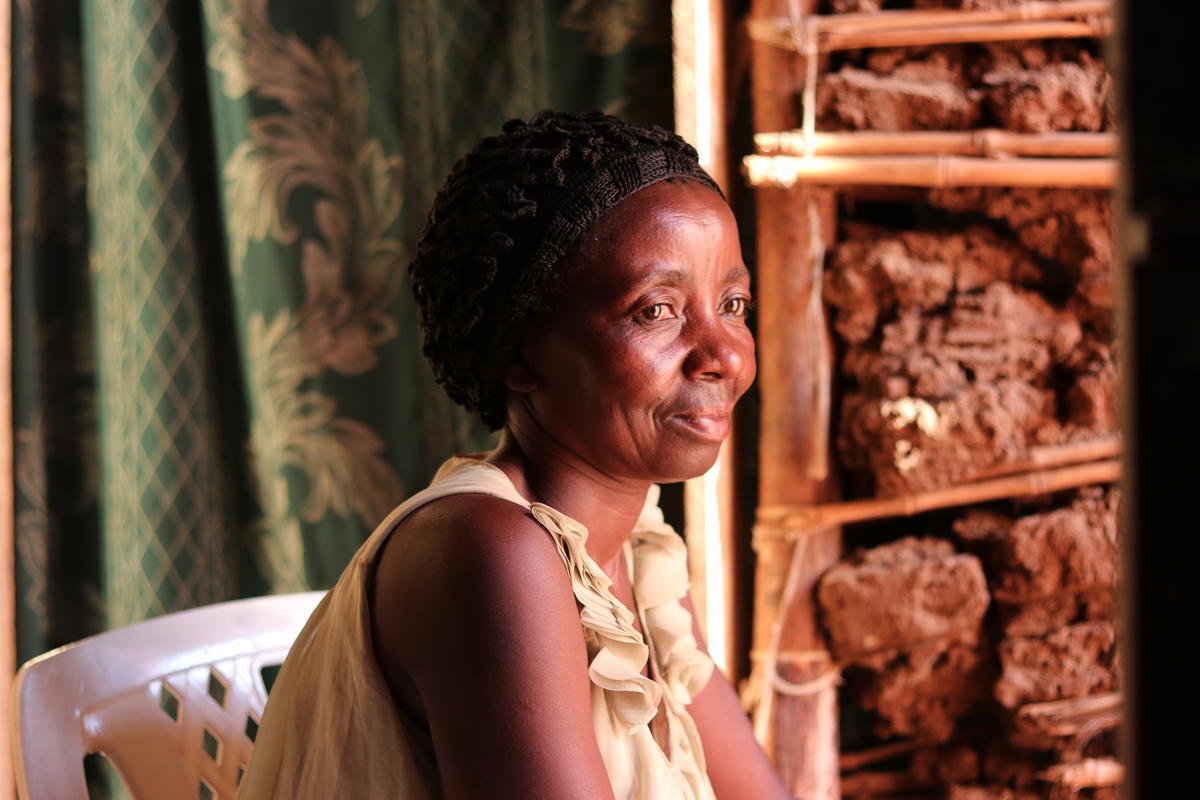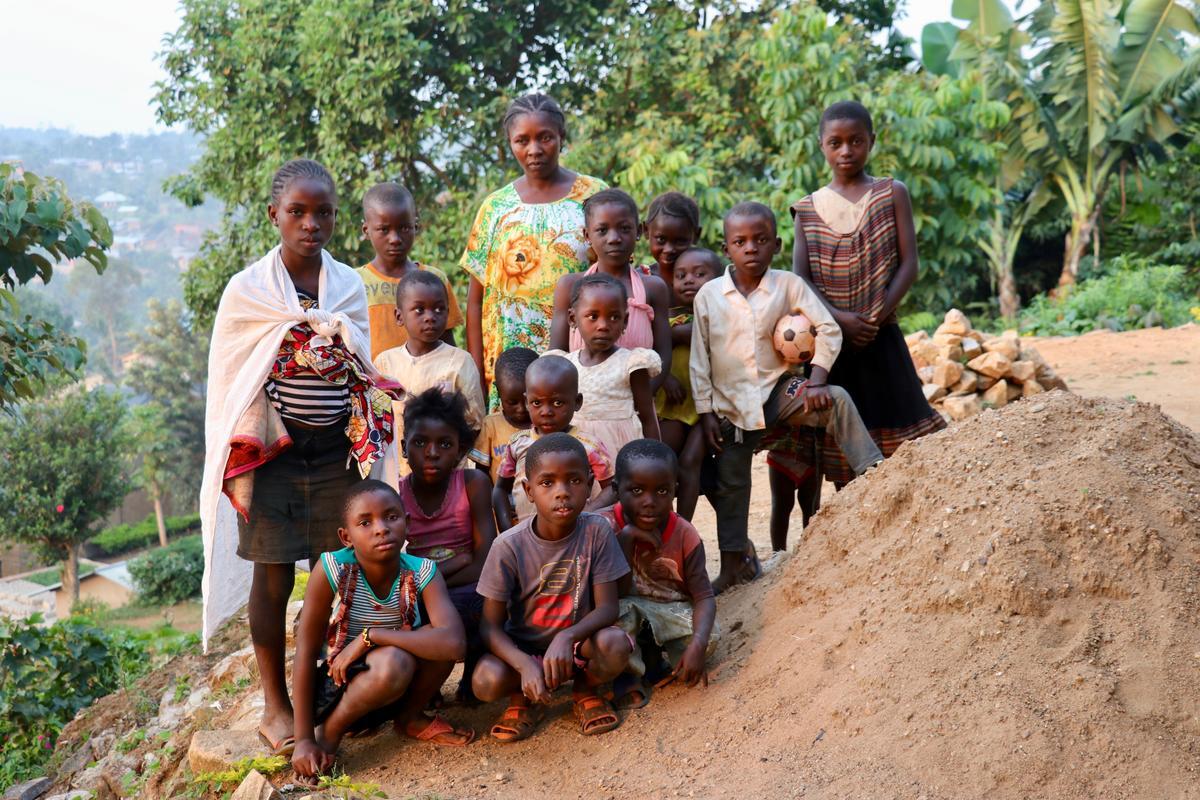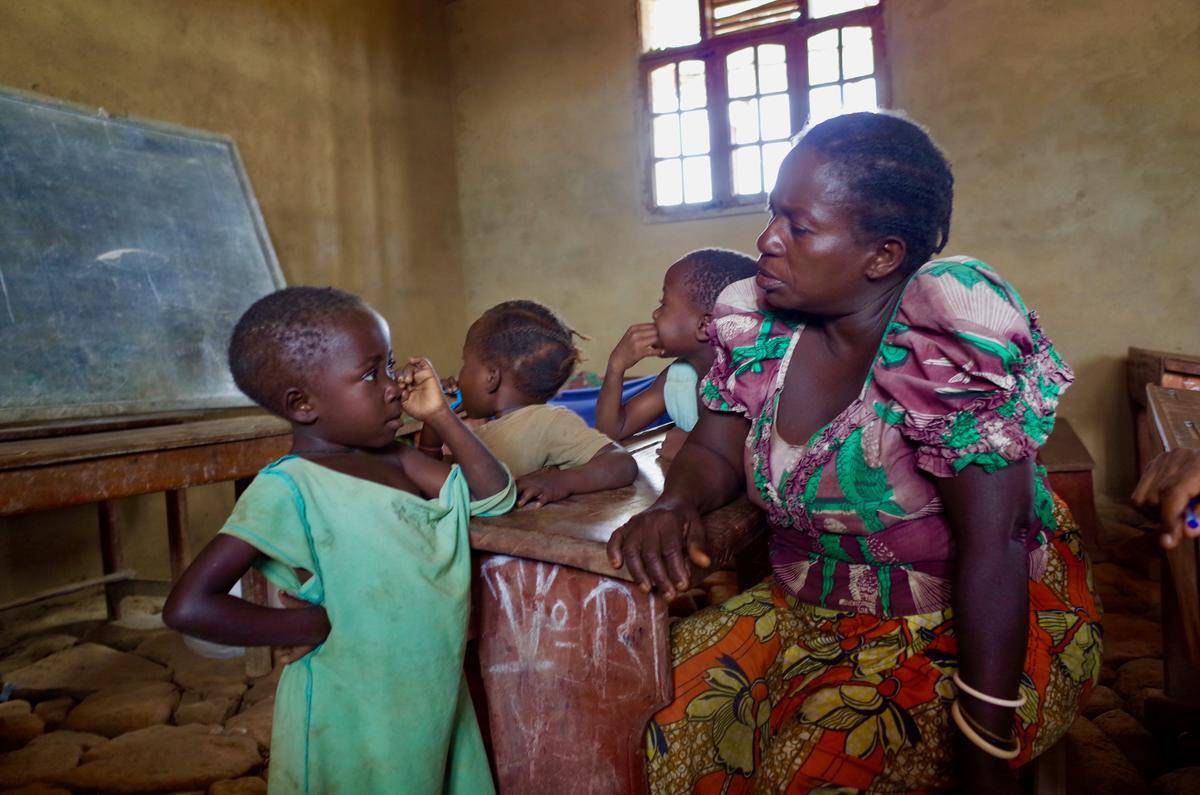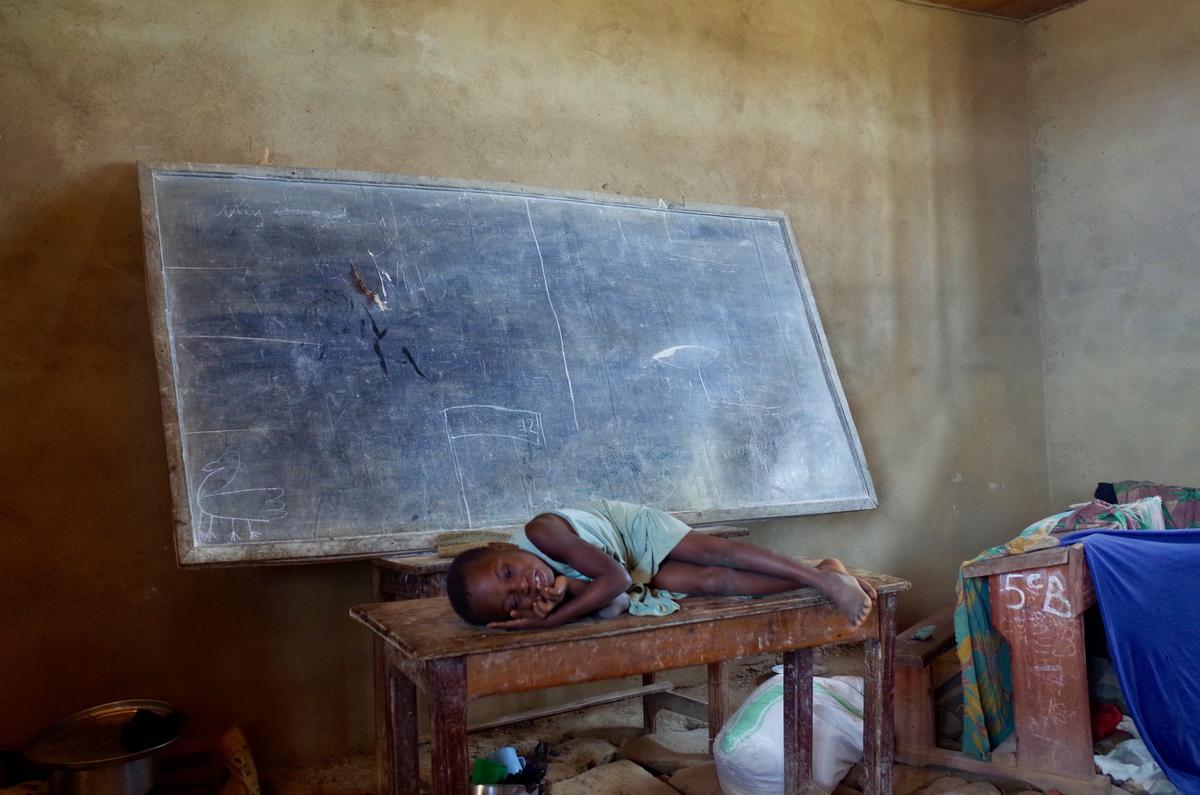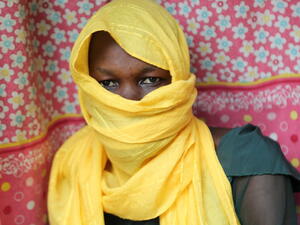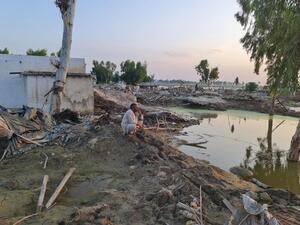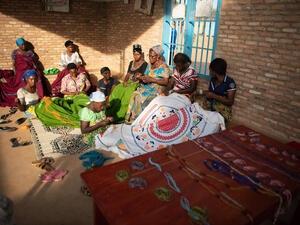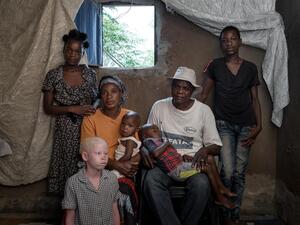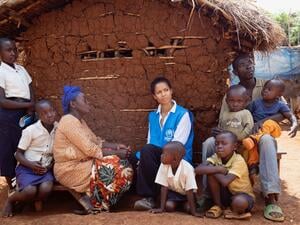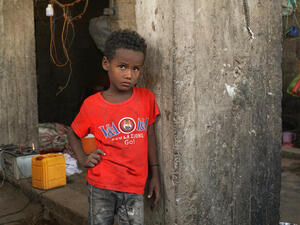Acute underfunding chokes off aid to desperate Congolese
Acute underfunding chokes off aid to desperate Congolese

Jeanne, 40, is a widow and lives in the Madiabuana neighbourhood in Beni with her 3 sons and 3 daughters. She hosts 4 around 80 people on her plot of land.
GOMA, Democratic Republic of the Congo – When armed assailants attacked their village in the Beni Territory of the Democratic Republic of the Congo’s North Kivu province last October, 42-year-old Agnes’s only thought was getting her six children to safety.
“The assailants came to Kamambia village at night,” she recalled. “One of my daughters fled beforehand with her sister, and I fled on foot with my four other children. We slept in the bush, on the bare ground. It was so scary.”
Displacement continues to rise in DRC’s Beni region on the country’s northeastern border with Uganda, fueled by a spate of deadly attacks on civilians by armed groups.
Across North Kivu province it is estimated that more than half a million people have fled their homes this year alone, creating the highest concentration of internally displaced people in the conflict- and Ebola-affected central African country.
Tens of thousands in Beni and surrounding areas have already abandoned their homes in search of safety, and the total continues to rise. At the same time, many of those displaced up to a year ago – like Agnes – still have no proper place to stay.
"I don't know how to raise my children living like this."
Unable to return home due to the ongoing violence, Agnes and her daughters spend each night squatting in a school in the town of Oicha along with dozens of other displaced families.
“We have to collect our belongings every morning and vacate the premises when classes start. We are left without shelter, even if it’s raining,” Agnes explained. “We don’t have access to firewood or clean water. I don’t know how to raise my children living like this. It’s impossible to live this way.”
Across this vast country, UNHCR – the UN Refugee Agency – is doing what it can to help the most vulnerable families, through shelter projects, small-scale cash grants, and protection monitoring and support to survivors of human rights violations. Agnes and her family will soon be moved to a family compartment in a collective shelter set up by the Agency.
But they are among the very lucky few, with UNHCR’s relief efforts being severely curtailed by acute levels of underfunding. So far the Agency has received just 31 per cent of the US$369 million funding requested for the response for displaced people in DRC and for Congolese refugees in other African host countries this year.
"Our main challenge is the lack of resources"
As a result, the Congolese situation is one of the six worst-hit refugee and displacement crises globally affected by UNHCR’s current funding crunch, new figures released today showed.
“Work in the Democratic Republic of the Congo brings a lot of challenges,” said Ann Encontre, UNHCR’s Regional Representative and Regional Refugee Coordinator for the Congolese Situation based in DRC’s capital, Kinshasa. “We need to operate in war zones and areas controlled by armed groups. In many areas, there are hardly any roads. Still, we find a way to reach the people that need our help.”
“But our main challenge is the lack of resources,” she added. “Our dedicated staff in the field could do a lot more to support those displaced by conflict if only there were more means.”
As a result, UNHCR is forced to make difficult choices that result in many of those in dire need not getting the assistance they require.
"I just want war to be over."
Only one in every eleven of the most vulnerable families in DRC currently gets shelter assistance, according to an analysis covering the first nine months of this year. Those living in makeshift shelters or staying with host families in overcrowded conditions are forced to fend for themselves.
One such individual is Paluku, 38, who fled his home in Kiharo on the outskirts of Beni city five months ago when violence erupted suddenly one evening. He is now staying with 80 other people on a plot of land in another part of the city owned by local resident Jeanne, 40.
“The assailants came and attacked two old men with machetes one evening in Kiharo,” Paluku said. “The entire neighbourhood fled to other parts of the city. I still have my house there but it’s too dangerous to go back. So we are staying with Jeanne, who is kind enough to host us.”
“I would be the happiest person on earth if peace returned,” he added. “We can deal with every other problem, as long as we have peace. I just want war to be over.”

